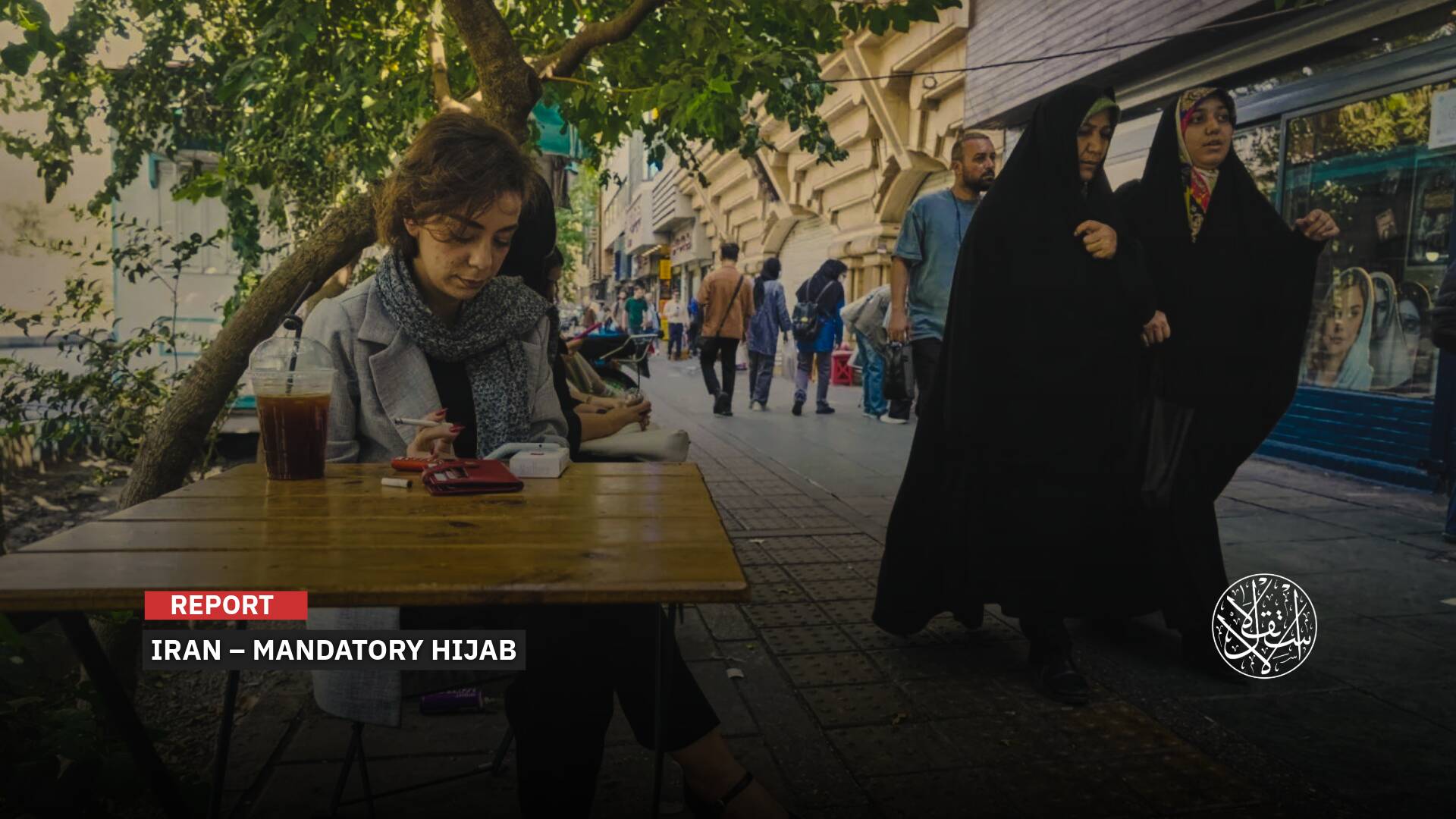Why Did Telecom Companies Flee From Egypt to Settle in Abu Dhabi and Riyadh?

The choice of the American company, "Apple" of Saudi Arabia, as the headquarters of its new academy in the Middle East, and before it the choice of the e-commerce and cloud computing giant, "Amazon" of the United States, for the Emirates, as the headquarters for the new data centers, shocked Egypt.
The choice of the two American giants shocked some of the Egyptian circles specialized in these fields, as the choices indicate the decline of Egypt in a market that it was heading for years.
When the revolution of January 25, 2011 erupted in Egypt, and with it the regime of Hosni Mubarak fell after a rule that lasted more than 30 years, the communications and digital technology sector, which witnessed a remarkable development before that date, was seeing its last days of prosperity.
That sector chain of decay and fall began with the Mubarak regime, in its last days, when he cut off communications from the main companies and citizens.

The Minister of Communications at the time, Tarek Kamel, understood this fact, as he stressed that "Egypt will face a big problem in attracting foreign investments in this sector."
He added, "There is a need to reformulate the messages that we will send to the world in the coming period, to restore confidence in the Egyptian investment market."
The minister revealed that "Egypt's losses as a result of the deliberate cutting off of the means of communication, over the past days, exceeded $90 million."
A full decade has passed since this event, and Egypt did not recover from its losses, which were exacerbated by the turmoil of the political and security situation under the umbrella of the regime's president, Abdel Fattah Sisi.
The tight security and intelligence grip by which Sisi rules Egypt, contributed to the regression of the digital communications and computing sector, and the migration of many Egyptian minds and programming engineers abroad.

Decline and Success!
The beginning was on May 26, 2021, when Amazon Web Services, one of the American Amazon.com companies, announced its intention to open an area for its data centers in the UAE in the first half of 2022.
According to the company, the new infrastructure area for "Amazon Web Services Middle East" consists of three areas to provide services. Thus, it will become the second area for the company's data centers in the Middle East after the current area in Bahrain.
The second news was on July 7, 2021, when Apple decided to open its first developer academy, “Apple Developer Academy”, in the Middle East and North Africa in Riyadh, after a partnership with the Saudi Federation for Cyber Security.
At the same time, Egypt has regressed significantly in this sector, especially as the security grip and the economic situation have led to the reluctance of foreign companies to invest, in addition to the call centers incurring huge losses.
This comes along with the generally poor performance of local and foreign companies in the Egyptian market.
On May 6, 2021, the National Telecommunications Regulatory Authority in Egypt announced the doubling of fines against telecom companies that provide poor quality services, with the second half of 2021.
This step was an attempt to urge telecom companies to improve the quality of their poor services to a large degree.
The government agency explained that, by conducting tests to measure the quality of mobile phone networks of telecom companies, they recorded poor performance in some regions in the first quarter of 2021, and the performance indicators were not at the required level.

The curve of the field of information technology, and the Egyptian telecommunications companies, began to decline after collusion with the Egyptian regime in cutting internet and communication lines during the revolution against the Mubarak regime.
Although the companies justified their actions by saying that they had no choice due to the tightening of the security grip, the matter lost the confidence of investors in the Egyptian market, in addition to its contribution to the migration of the sector’s owners and brilliant minds abroad.
Big Loss
The Egyptian engineer specializing in communications, Ahmed Mahmoud, wrote on July 23, 2021, via Facebook, that "within two months, two important events occurred in the field of technology in the Middle East.
"The first is that (Amazon) decided to open 3 huge data centers for cloud computing services, the largest and most important sector that brings money to Amazon," according to Mahmoud.
He added, "One of them is in Dubai, in the UAE, in addition to the existing centers under Amazon in Bahrain, and these will cover the entire Middle East with a greater business capacity than the current one."
He stressed that Apple will open the first headquarters of its developer preparation academy, in the Middle East, in Riyadh, to qualify university graduates for the programming and computer science market, such as the (ITI) in Egypt, but larger.
“Without exaggeration, if Tarek Kamel (the former Egyptian Minister of Communications) and Ahmed Nazif (the former Prime Minister of Egypt), were present as they were from 2005 to 2009, the two events would have taken place on Egyptian soil,” according to Mahmoud.
The Egyptian engineer asserted that, "I had no doubts that those who took the decision of Amazon and Apple to establish institutions in Saudi Arabia and the UAE, thought for once in Egypt, and then excluded it from their plans because of the existing situation."
"With full emphasis on Ahmed Nazif's crimes in various sectors during his tenure as prime minister, the communications and technology sector, which was built during his reign, will not be repeated again in the near term," he says.
He pointed out that "that period, the best for Egypt in this field, produced highly experienced (software) engineers, the vast majority of whom are currently working outside the country."
“It is a great loss and sad for those who lived through the boom days of the Egyptian market, before the military ruined it all,” the Egyptian engineer expressed his sadness.
He concluded by saying: "the most technological field that brings money to Egypt has become the creation of (Tik Tok) content and daily routine channels."
Confidence Lost
Egyptian software engineer Ahmed Hossam El-Deen says: "When we chronicle the programming and computing sector in Egypt, we rely on two main periods, the first before 2011, and the ten years before that date."
He mentioned to Al-Estiklal, "How the sector was launched and flourished, with the establishment of the Smart Village in Egypt in 2001, which included hundreds of governmental, private and foreign companies associated with the telecommunications industry."
As well as "the inauguration of universities and academies specialized in graduating thousands of students annually, which made Egypt a central focus in the Middle East, in the field of communications and information technology," he estimated.
The Egyptian engineer adds that "the idea of leadership has gone beyond the export of minds and expertise, which is something that is currently different. Minds and expertise are not exported, but rather flee outside the market due to the political and economic conditions."
It is believed that "Mubarak cut communications in 2011, with the outbreak of the January 25 revolution, like a pivotal episode in the history of the sector inside Egypt, and it was the beginning of the real decline, with the exit of major companies from Egypt."
“This was followed by the lack of confidence of investors in this field in the country and the government, with great fears related to the labor market in Egypt,” according to Hossam El-Deen.
He asserts, "This situation has continued until now, with the security services controlling and monitoring the field."
"In addition to a basic part that came after the float of the Egyptian pound, which is the decrease in the income of engineers and technicians in the market, which was affected by the economic situation," according to the Egyptian specialist.
He explains that "their counterparts abroad receive approximately 5 to 10 times more than those from within, and this naturally led to the exit of the distinguished among them, leaving Egypt without return."













